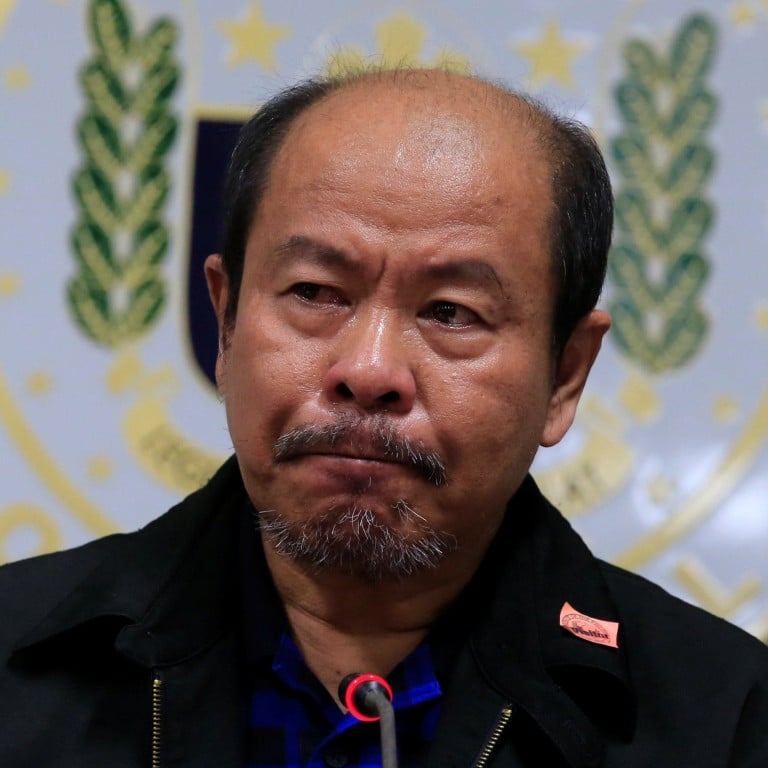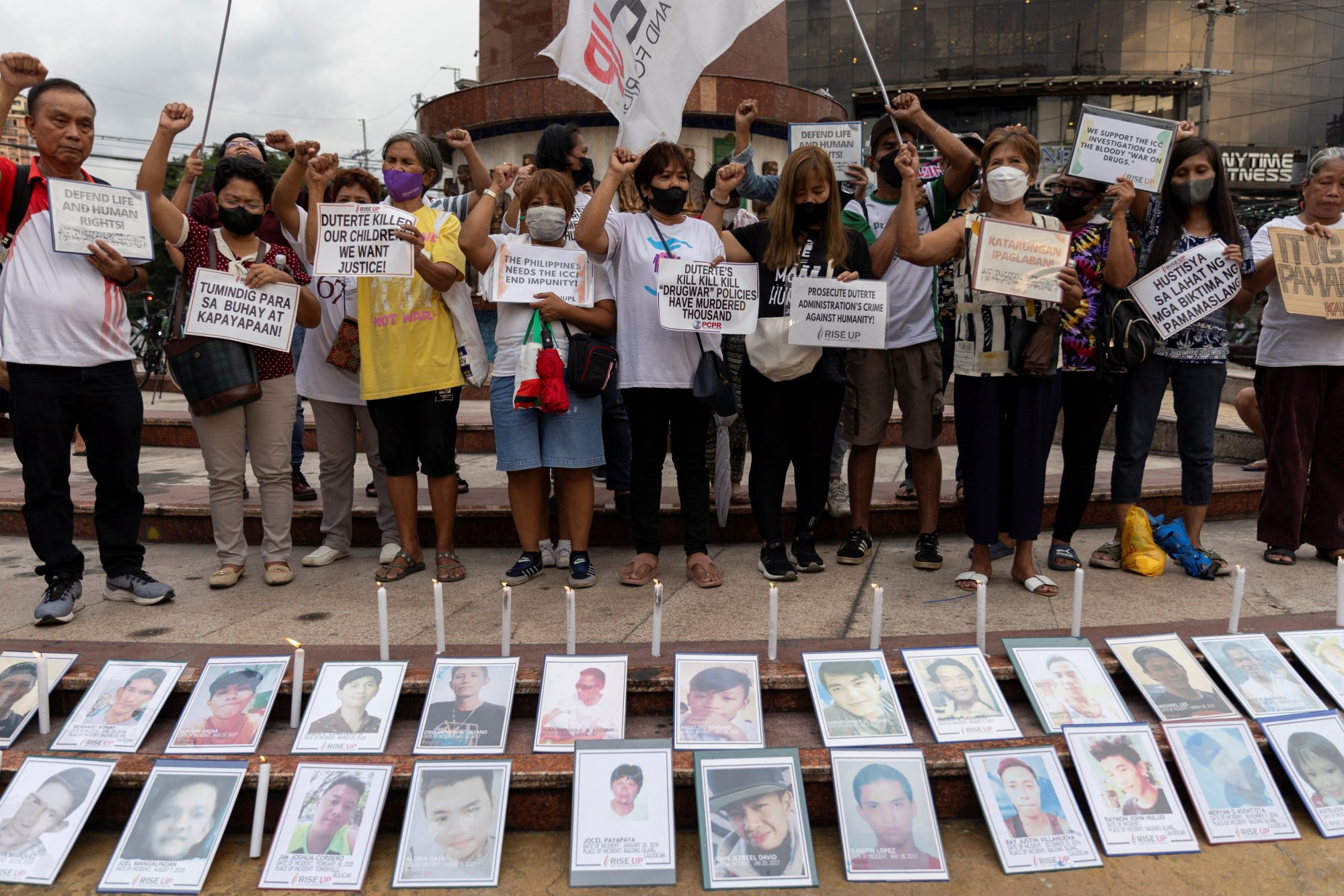
Philippine ex-policeman accuses Rodrigo Duterte’s son, daughter of masterminding Davao drug killings
- Arturo Lascanas said Vice-President Sara Duterte-Carpio, as Davao mayor in 2012, instructed law enforcement officers to abduct and bury drug suspects to portray them as kidnapping
- He also alleged she teamed up with senator and then-Davao police chief, while her brother and vice-mayor Paolo ran a clandestine drug smuggling syndicate
Arturo Lascanas said current Vice-President Sara Duterte-Carpio devised an operation, instructing law enforcement officials to abduct and bury drug suspects to portray them as kidnapping cases, when she was Davao mayor in 2012.
Lascanas alleged she teamed up with senator and then-Davao police chief Ronald “Bato” dela Rosa to spearhead the offensive, while her brother and vice-mayor Paolo Duterte ran a clandestine drug smuggling syndicate.
‘I will face accusers’: Philippines’ Duterte responds to ICC probe into war on drugs killings
“Sara was the instigator of oplan tokhang,” Lascanas, referring to the anti-narcotics drive in which officers knocked on the doors of suspected drug users or peddlers and ordered them to mend their ways.
“Bato told me, they crafted a new extrajudicial killing campaign against illegal drugs,” said Lascanas, who worked with the Davao city police for 34 years and was part of a Davao death squad.
“Their target was personalities against illegal drugs, especially those who are using and selling shabu (methamphetamine). He said, drown the target so that the case becomes a missing person case.”
He added Duterte-Carpio adopted the strategy to take the media spotlight off the killings and other suspected rights abuses, the Philippine Daily Inquirer reported.

In 2017, Lascanas said he had killed a radio host critical of the elder Duterte. The politician and the police have denied the existence of a Davao death squad.
Police say they killed more than 6,000 dealers who resisted arrest during anti-drug operations during Duterte’s six-year term. Many thousands more users and peddlers were gunned down during the crackdown, in what authorities said were vigilante killings. Rights groups and some victims accuse the police of systematic cover-ups and executions, which they deny.
Lascanas, who appeared before the ICC in 2022, said he also personally delivered about 150,000 pesos (US$2,671) in bribe money linked to the drug smuggling ring to Paolo every week.
He claimed former leader Duterte operated a methamphetamine laboratory in Davao city.
“You tricked the Filipino people. You are the drug lord. He ordered our group to kill 11 Chinese workers,” The Philippine Star quoted him as saying.
Did ICC enter the Philippines to probe ex-leader Duterte’s anti-drug campaign?
The Philippines in 2019 withdrew from the international tribunal based in The Hague after Duterte questioned its authority to investigate his police-enforced crackdown on illegal drugs.
The ICC last July sought to reopen the investigation into alleged crimes against humanity committed under Duterte’s administration after turning down Manila’s appeal against the inquiry.
In a rare conviction, a Philippine court in 2018 sentenced three policemen to up to 40 years in jail each for the killing of a teenage suspect in Metro Manila’s Caloocan city.
The court rejected their claims that he opened fire at them with a pistol, prompting them to fire back. A security camera and witness accounts indicated that the teenager was dragged into a dark alley and shot to death as he pleaded for his life.
